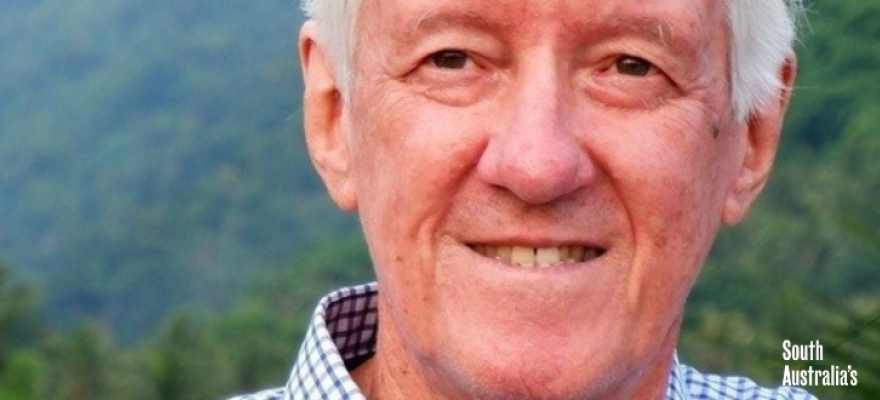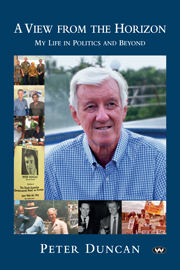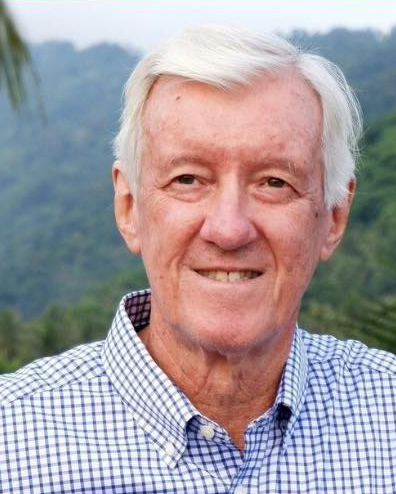Jane Timbrell reviews A View from the Horizon by Peter Duncan (Wakefield Press 2024, pp276, $39.95)

Fifty years ago, on 2 October 1975, South Australia became the first state in Australia to decriminalise homosexuality (the bill passed parliament earlier in September).
This significant act of reform was spurred by horror and revulsion at was widely thought to be the homophobic murder by police of Dr George Duncan, a University of Adelaide academic.
A young MP in the reforming Don Dunstan Labor government, Peter Duncan (no relation) introduced a private members’ bill that was successfully steered through parliament. He soon after became Dunstan’s attorney-general.
It was part of a wave of Labor reformism that started with the federal Whitlam government. That age seems a long way behind us as present Labor governments do little to disturb the status quo at home and go along with imperial militarism abroad.
Here Jane Timbrell reviews Peter Duncan’s autobiography. It shows reforms are possible by ambitious Labor governments pushed on by mass movements of the working class but also shows the limits of parliamentary reformism.
Labor Tribune editor
——

This is not just another autobiography; this is a candid account by Peter Duncan of his personal life and most importantly, his public life as a Labor politician. To quote Duncan’s publisher Wakefield Press it is “a brutally honest autobiography that paints a portrait of an imperfect man whose many achievements in the cause of a more progressive state and nation must be remembered”.
In 1973, at age 28, Peter Duncan was elected to the SA House of Assembly, to represent the seat of Elizabeth and in the same year he introduced a private members bill to decriminalise homosexual acts between consenting adults in private. The incident that precipitated this bill was the drowning of Dr George Duncan in the Torrens River, widely regarded to be the act by unnamed police officers in May 1972. The crime outraged the Adelaide community. The bill did not become an act until 1975.
Peter Duncan left a significant and progressive mark on the Labor Party and on South Australia. We are fortunate that Duncan was a member of the Dunstan government; and many of us look back with fondness of that era in SA. I was but a young student in Adelaide at the time, keen to soak up the political process that was delivering wonderful social change in the 1970s. It was great to be on the inside of the Labor Party; and it was a wonderful education.
Duncan’s book explains how he regularly garnished the support of the Labor caucus in order to achieve real and significant changes for the state; changes which would be adopted by other Australian states, some by the Commonwealth and others adopted by progressive governments around the world.
Apart from the decriminalisation of homosexuality, Duncan and the Labor government achieved an avalanche social reform at the state level, which had otherwise been blocked by previous conservative governments. The Dunstan government abolished the death penalty, lowered the voting age to 18, established Australia’s first land rights legislation, reformed censorship laws and massively increased funding to the arts.
Duncan’s book demonstrates his commitment to a fairer, better and just society. Duncan is rightfully proud of his achievements and they demonstrate his commitment to look after the community, particularly women (eg criminalising rape in marriage) and the poor (eg establishing a legal aid service). Duncan’s account understates the significance of his personal skills, his clear and strategic mind, and his ability to bring people together and deliver real changes.
In 1984, Duncan resigned from the South Australian parliament to contest the federal seat of Makin and joined the Hawke Labor government. Political life was different in Canberra where the right faction dominated caucus; and Duncan’s ability to achieve social changes was much reduced.
Duncan gives a clear insiders’ view of the split within the left faction throughout the turbulent Hawke-Keating years, warts and all; and he spells out the consequences of his support for Keating. As Prime Minister, Keating appointed him the position of Parliamentary Secretary to the Attorney-General, Michael Lavarch. Duncan reports of a satisfactory time working with Lavarch and highlights the immense pleasure of negotiating and achieving the Disability Discrimination Act in 1992.
In 1996, when John Howard became prime minister and after 12 years in the Australian parliament, Duncan was defeated in his seat and so ended his public political career.
The book ends in 2019 when the COVID-19 pandemic arrived and he embraced the lockdown as an opportunity to write his autobiography. It is a great and easy read and it will be enjoyed by most who met or worked with Peter Duncan during his political career.
In September 2025 many gathered in Adelaide to celebrate the 50th anniversary of the decriminalisation of Homosexuality in South Australia. This was definitely one of Duncan’s proudest political achievements.
It was a turning point for the Australian gay community. It was acknowledged by the LGBT+ journal, the Star Observer on 2 October this year.
Jane Timbrell, Canberra
Life Member, Australian Labor Party

